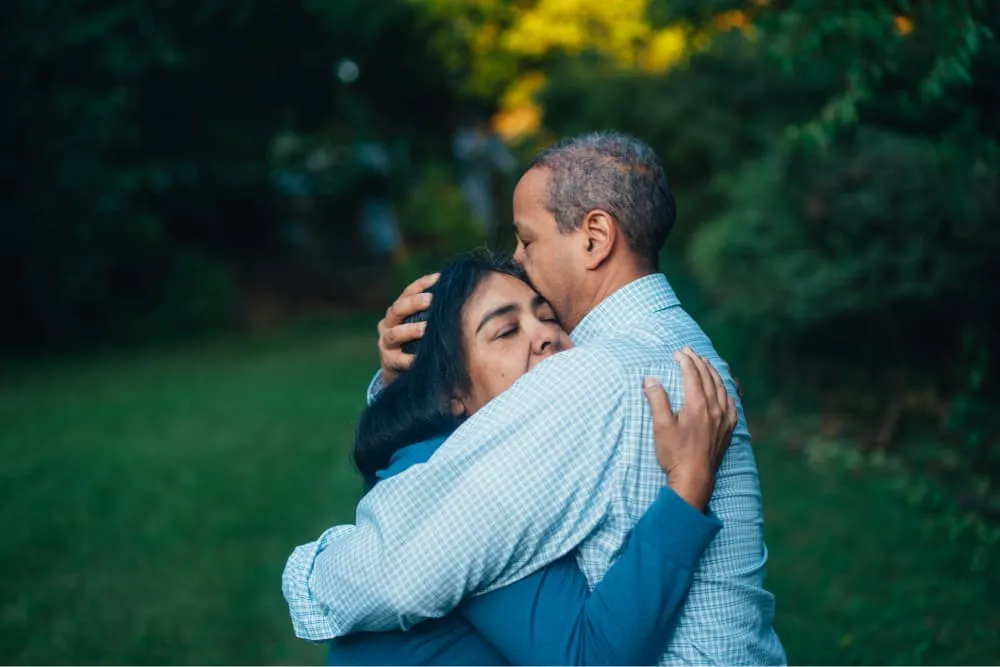What is trauma-informed care?
Trauma-informed care (TIC) is a treatment approach in which clinicians assume that an eating disorder patient is more likely to have gone through some type of trauma than not.
Trauma-informed care, in and of itself, is not about treating trauma—instead, it informs a clinician’s approach to care. Namely, they are respectful, compassionate, and provide appropriate support for those who have experienced trauma. Providing trauma-informed care can significantly reduce the risk of retraumatizing or triggering eating disorder patients.1
There are five core principles of trauma-informed care that guide a clinician’s treatment approach, including:
1 - Empowerment: Fostering an affirming and validating treatment setting that emphasizes the patient’s strengths and ability to develop and utilize new strategies and skills
- Trustworthiness: Establishing a trusting relationship, setting professional and respectful boundaries, and promoting transparency within the therapeutic relationship
- Collaboration: Giving the patients the power to make choices related to their eating disorder evaluation and planning
- Choice: Allowing the patient to guide and control their treatment planning, modalities, and experience
- Safety: Ensuring patients feel physically and emotionally safe while in treatment
Ultimately, trauma-informed care is respectful, compassionate, patient-centered, and strengths-based, prioritizing the patient’s safety, mental health, and the effect their trauma has on their functioning, well-being, and symptoms.
How does trauma-informed care help treat eating disorders?
Trauma is common among people with eating disorders, with traumatic events significantly increasing the risk of developing an eating disorder. This is especially true for people who experience childhood trauma (often known as adverse childhood events, or ACEs), such as emotional, sexual, or physical abuse, neglect, witnessing violence, or having family members who misuse substances or have a severe mental health disorder.2
Some people who experience trauma or have traumatic memories, whether a singular event or complex trauma, develop post-traumatic stress disorder (PTSD), a complex and severe psychiatric condition. Much like a history of trauma, there are higher rates of PTSD in eating disorder patients, especially those with bulimia or bulimia symptoms, than in the general population.3 Prevalence rates for these co-occurring disorders are as high as 52% in some studies.4
Not everyone who experiences a traumatic event develops PTSD; however, their history of trauma will still affect their eating disorder and recovery.
Trauma-informed care can help someone in an eating disorder program by first understanding how trauma can disrupt functioning, emotional regulation, body image, shame, and beyond. Having a deep knowledge of the long-lasting effects of trauma can help to contextualize a patient’s thoughts, feelings, and behaviors, as well as help guide treatment planning.
The goal of trauma-informed care is to help clinicians create a physically and emotionally safe space in which patients can recover without worrying about being retraumatized. Patients cannot meet their full potential, heal from their relationship with food and movement, and build and practice new skills if they don’t feel safe and cared for.
Creating a safe physical and social-emotional space for eating disorder patients
Feeling unsafe can cause significant distress, anxiety, and fear in eating disorder patients with a history of trauma. On the other hand, a safe environment can be healing and transformative.
Here are ways in which a trauma-informed treatment program creates a safe social-emotional space:5
- Following consistent schedules and routines
- Giving appropriate notice when changes will be implemented
- Staffing culturally responsive and culturally affirming providers
- Practicing open, compassionate, and transparent communication
- Setting healthy interpersonal boundaries
- Making sure patients feel supported and respected
A safe physical space may include:5
- Making sure common areas are well lit
- Ensuring patients have easy access to treatment rooms and a clear exit
- Utilizing welcoming and inclusive language on signs
- Keeping noise levels at an appropriate volume
- Staffing security personnel (who are trained in safe, non-traumatizing de-escalation practices and understand mental health and trauma)
- Monitoring all visitors
- Forbidding loitering at exits and entrances
Benefits of trauma-informed therapy
There are many benefits to using a trauma-informed approach to eating disorder recovery, including:5
- Improved patient engagement
- Stronger relationship with the clinician
- Improved long-term health outcomes
- Improved treatment adherence
- Reduce staff turnover and provider burnout
When using a trauma-informed approach, providers amend the question of “what’s wrong with you?” to “what happened to you?” This question reduces shame and guilt and acknowledges the patient's lived experience.5
Trauma-informed care at Within
Within is a virtual eating disorder treatment program committed to providing patients with high-frequency quality care in a safe and welcoming environment. We understand how trauma can affect everything in a person’s life, from eating habits and exercise to mental, physical, and social-emotional health. We also value a person’s lived experience and welcome them to be active participants in their eating disorder treatment planning, not only at the beginning of the program but throughout.
Treatment plans are not set in stone—our patients are empowered to communicate their needs with us, and we will collaborate with them to adjust their strategy accordingly.
Putting our patients first
Trauma-informed practices are used in every aspect of our treatment program, from screening for trauma and PTSD at intake to creating a plan that involves trauma therapies to address trauma-related symptoms, such as prolonged exposure therapy.
Call us today We are also aware of the complex trauma associated with prejudice, such as racism, transphobia, homophobia, ableism, weight stigma, fatphobia, and more, and how discrimination and shame can prevent someone from seeking the treatment they need to recover. That’s why we are committed to providing an inclusive environment for our virtual treatment programming, so people feel respected, seen, and safe without having to worry about being triggered or further traumatized.





















































